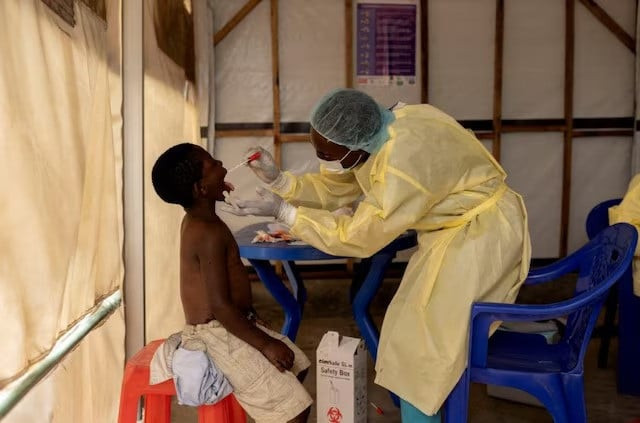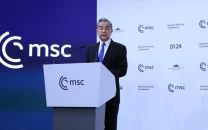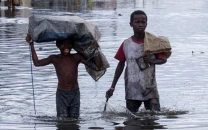WHO issues global alert as new mpox variant triggers emergency
To address the outbreak, WHO has already released $1.5m in contingency funds and plans to mobilise more resources

The World Health Organisation (WHO) has once again declared mpox a global public health emergency, marking the second time in two years that the virus has reached this level of international concern. This declaration comes in response to an outbreak in the Democratic Republic of Congo (DRC) that has rapidly spread to neighboring countries, prompting WHO's highest level of alert.
On Wednesday, an emergency committee convened to advise WHO Director-General Tedros Adhanom Ghebreyesus on whether the current outbreak meets the criteria for a "public health emergency of international concern" (PHEIC). The PHEIC designation is used by WHO to signal the need for urgent international action, including accelerated research, funding, and coordinated public health efforts to contain the disease.
Tedros emphasised the importance of a global response, stating, "A coordinated international effort is crucial to stop these outbreaks and save lives." Mpox, which spreads through close contact, is generally mild but can be fatal in rare cases. The virus typically presents with flu-like symptoms and pus-filled lesions on the skin.
The current outbreak in Congo originated from an endemic strain known as clade I. However, a new variant, clade Ib, has emerged, spreading more easily through routine close contact, including sexual contact. This new variant has moved beyond the borders of Congo, affecting countries such as Burundi, Kenya, Rwanda, and Uganda, which led to the WHO's emergency action.
Tedros expressed deep concern about the rapid spread of this new clade, particularly in regions that had not previously reported mpox cases. He highlighted the potential for further spread within Africa and beyond, underscoring the urgency of the situation.
To address the outbreak, WHO has already released $1.5 million in contingency funds and plans to mobilize more resources. The initial response plan will require an estimated $15 million, and WHO intends to appeal to donors for additional support. The outbreak has been particularly severe in Congo, where Africa's top public health body recently declared an mpox emergency. This year alone, over 17,000 suspected cases and more than 500 deaths, primarily among children, have been reported.
Professor Dimie Ogoina, chair of WHO's mpox emergency committee, described the situation as "extraordinary," noting the record number of cases in Congo. While vaccines and behavior change previously helped contain a different strain of mpox in 2022, the current transmission routes in Congo require further investigation. WHO is working on vaccine availability and targeting, and has called on countries with stockpiles to donate doses to aid in the response.


















COMMENTS
Comments are moderated and generally will be posted if they are on-topic and not abusive.
For more information, please see our Comments FAQ